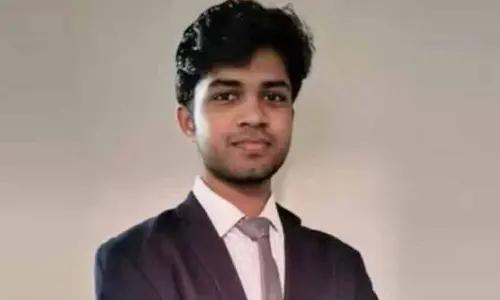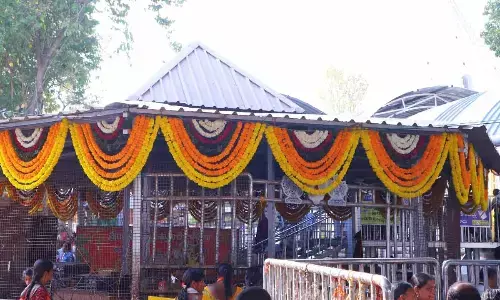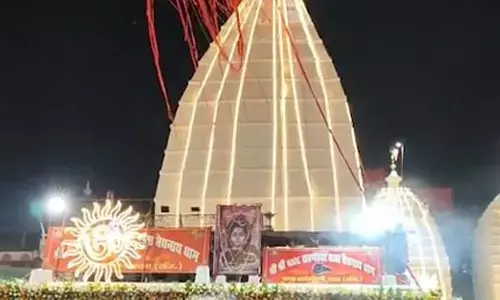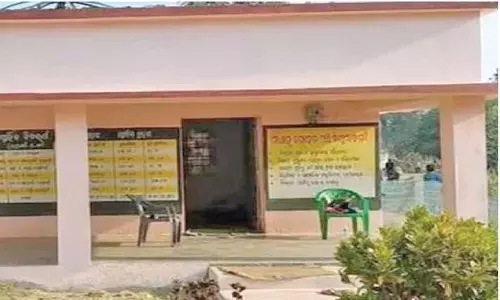When curfew led to library of rare literature
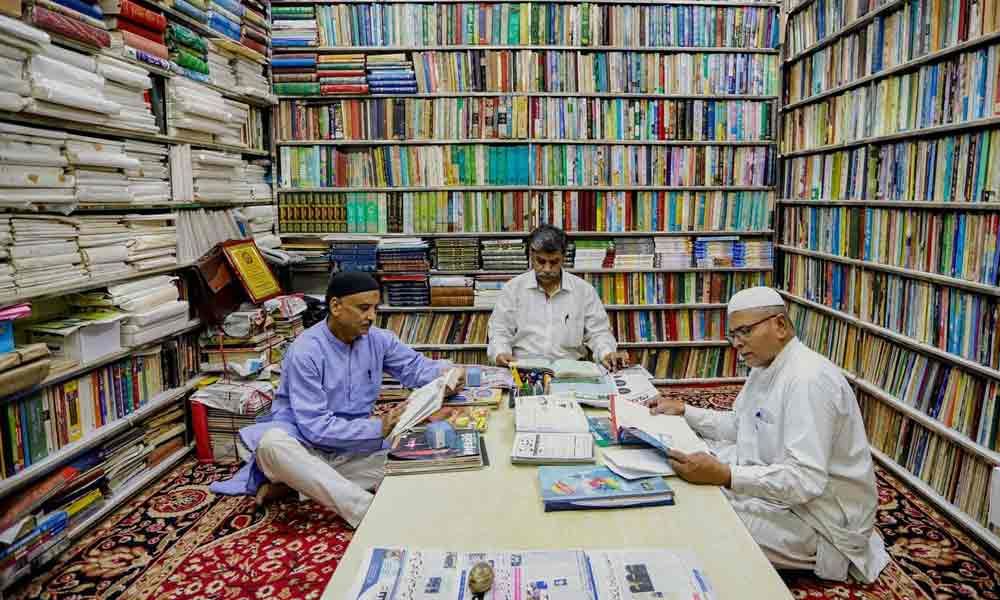 When curfew led to library of rare literature
When curfew led to library of rare literatureOn a restive, summer night in 1987, when the Walled City was under curfew following communal violence in Uttar Pradesh, a group of young men snuck out to buy vegetables, milk and other essentials for people in the area.
New Delhi : On a restive, summer night in 1987, when the Walled City was under curfew following communal violence in Uttar Pradesh, a group of young men snuck out to buy vegetables, milk and other essentials for people in the area.
That dark, desperate night was the unlikely origin of the Hazrat Shah Waliullah Public Library, a depository of rare literature, including a 600-year-old Arabic book on logic, a copy of the Bhagvad Gita in Urdu, the Ramayan in Persian, and the entire works of Bahadur Shah Zafar printed in 1885.
The library, housed in Pahari Imli lane, a crowded left turn from the famous Matia Mahal road leading to the Jama Masjid, caters to thousands of people in the locality. The night three decades ago was the turning point, said Muhammed Naeem, who with his 10 friends started the Delhi Youth Welfare Association (DYWA) in a nondescript small room in Pahari Imli three years later.
"After three-four days of the curfew in 1987, there was no food, or milk. We snuck out to bring essentials. It was a turning point, when this thought occurred that we seriously needed to do something for the people," Naeem told PTI.
Soon, the room, once a bachelors' pad where young men gathered to play carroms, cards, and cool off after a match or two of cricket, became a library where residents of the area congregated to read books, borrow them or simply browse.
Tucked away from the everyday hubbub, nothing about Pahari Imli stands distinct, at least not the small wooden door that leads to the room housing the Waliullah Public Library. However, what lies within is what author and poet Jorge Luis Borges imagined to be a paradise. "I have always imagined that paradise will be a kind of library," he had mused.
DYWA president Naeem recalled how the crowd-funded library, named after an 18th century Islamic scholar, came to be. In 1990, the 11 young men founded DYWA and started sponsoring widows with Rs 100 a month. Then, looking at low literacy rates and poverty in the area, the group took another step - the library.
"Everyone brought in their personal collections. There were a lot of books on sports at first. Then we brought Islamic literature, and everyone spoke about the library in their circle. Some were donated to us, some we bought, and today we don't have enough space to fit the books," the 54-year-old businessman said.
Managed by members of the DYWA, the library today owns more than 20,000 books in Urdu, Arabic, English, Hindi, and Persian. About 2,500 books are received from rare collections. The collection boasts of rare works of Mughal era poets Mirza Ghalib, Mohammed Ibrahim Zauq, Momin Khan Momin as well as medieval Sufi treaties.
The room, shut off from any and all sounds of the outside world, opens for a few hours in the morning till 1 pm. There are a few people in the morning hours but come evenings and a host of regulars march in for reading and discussions till late hours. "We get students and researchers here, but most evenings, people from Old Delhi-based NGOs gather here and then there is no telling when everyone will go home. Politics, history, current affairs, the topics of discussion are anything and everything," Naeem said.
One such researcher that stumbled upon this treasure trove in 2010 was Anand Vivek Taneja, then a Columbia University graduate student and now assistant professor of Religious Studies and Anthropology at the Vanderbilt University in the US. "I was astonished at finding this library...The small one room library had an astonishingly eclectic collection of books in several languages," Taneja said.
In his subsequent return to the city, he would make it a point to visit the library. "I would turn to the high shelf hosting the Urdu antiquarian books on the history of Delhi, such as Bashiruddin Ahamad's 'Waqiat e Darulhukumat Dehli' and read them for a peaceful hour or two, before getting back to the hustle and bustle of Delhi and ethnography. Those books were out of print, and expensive to purchase," he added.
Some like Olivia Biswas, a PhD scholar, found guides and mentors in the members of the library. "The members of the library were the gate keepers for my data search. They took me through the narrow alleys and by lanes of the walled city for my research purposes," she said. Over the last 25 years, DYWA has faced problems frequently.
"Earlier we had wooden racks, and as it goes for wood it was infested with termites. A lot of books were ruined beyond saving. The whole room was renovated, and steel almirahs were installed," Naeem rued.
The self-funded library also faces problems of space and sponsorship. "There isn't a single MLA, counsellor, MP we have not met in all these years. This is not an ideal space for such rare and priceless books. We can even ignore the sponsoring, but we need space," he said.
"In the last 28 years we have not taken any financial help from the government. Every year, we spend Rs 6-7 lakh from our own pockets. We are planning to digitise these books, then there is cataloguing. These things require funds. The new generation does not know how priceless these books are... But we have great hopes from the young members of DYWA. Some of them are lawyers, two are in Google," he said.




